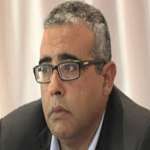This policy perspective examines why levels, changes and determinants of inequality are at the heart of the development agenda and feature prominently in the concerns of the Arab region. Among the reasons it lists is that excessive inequality is harmful for poverty reduction policies. In other words, the lower the level of income inequality, the greater is the capacity to convert economic growth into poverty reduction. Policy makers who are interested in maximizing the poverty reducing impact of economic growth may thus be seeking changes in the income distribution that reinforce, rather than counteract, the poverty effect of economic growth. Another reason is that greater equality may itself be a social objective in its own right, perhaps considered as one of the dimensions of social welfare. This may be due to the fact that inequality is often linked to the prevalence of social exclusion, to unfair distributions across groups or regions, and to low trust in institutional systems. Such circumstances tend to give rise to social disruptions and concerns for policy makers. Concerns about inequality may go beyond income inequality to other dimensions such as inequality in access to public services and labor market opportunities. This policy perspective focuses some features which characterize inequality and polarization in some Arab countries in the light of some recent studies bout the level and the patterns of inequality and polarization in selected Arab countries.

Authors
Sami Bibi
Research Advisor, Human Resources and Skills Development...

Research Fellows
AbdelRahmen El Lahga
Associate Professor, Institut superieur de Gestion de...



